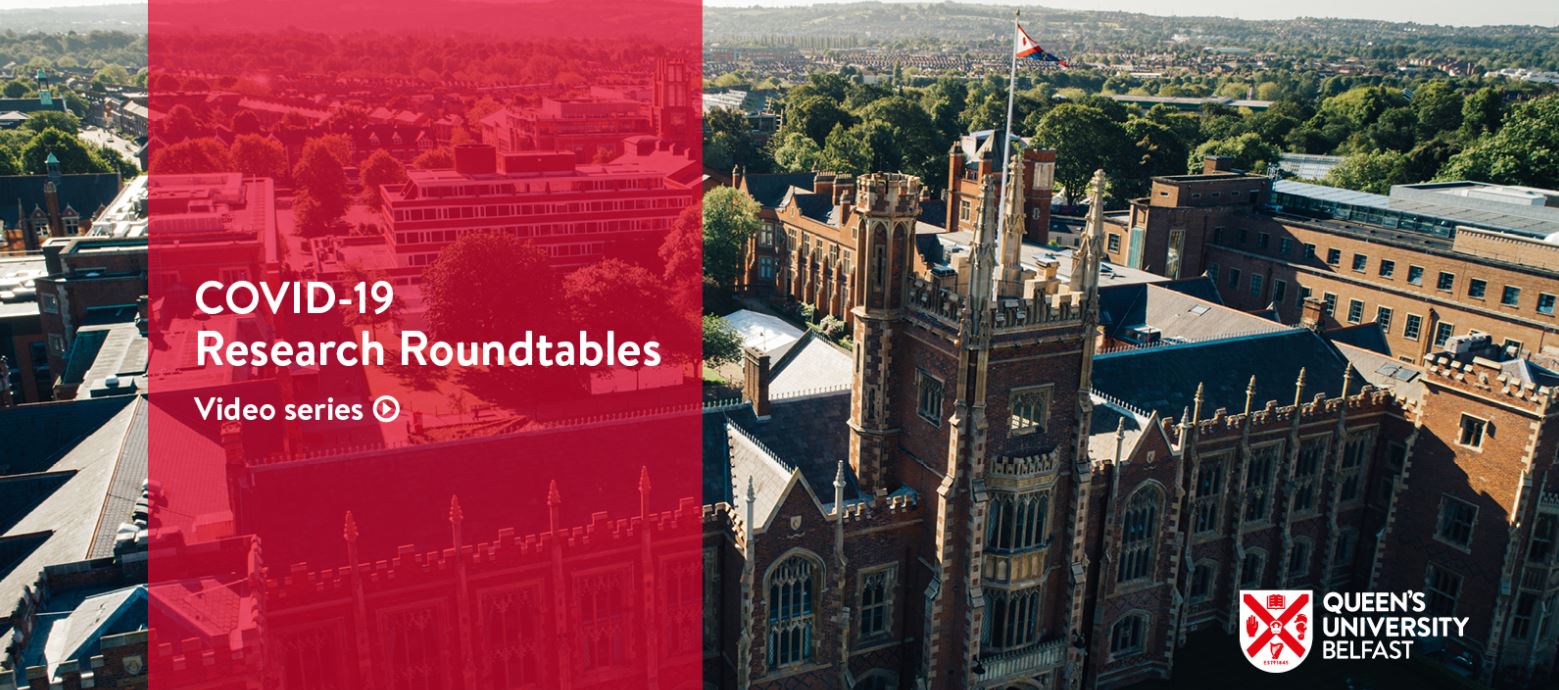COVID-19 RESEARCH ROUNDTABLE VIDEO SERIES
09 July 2020
COVID-19 has had a significant impact not just in terms of the immediate effects of the disease, but across a whole spectrum of aspects of our lives.
In the context of a global pandemic, is sharing our personal data now a societal duty – or is it an intrusion too far? Does COVID-19 put our food supplies at risk? Are we all in this together, or has the virus exacerbated already existing inequalities? What of those with unrelated health conditions, and what will be the long-term effect on our health service? How will the crisis affect other aspects of society, such as our arts and culture?
To explore these issues, Professor Emma Flynn, Pro Vice-Chancellor for Research and Enterprise at Queen's, has invited a range of experts, both academics and practitioners, from within and beyond the University, to share their expertise in a series of panel discussions.
Pro Vice-Chancellor Professor Flynn said:
“Each Roundtable is designed to be a free-flowing discussion, but within each we will try to address some key themes: what is the immediate effect of Covid-19 in this particular area? What are we learning? What is the pathway for the future?”
The series is to be released in both video and audio podcast format.
In the first programme, Looking out for Big Brother, Professor Flynn and her guests – Professor Frank Kee and Professor Máire O’Neill of Queen’s; Jayne Brady, the Belfast Digital and Innovation Commissioner; and Dr Stephen Farrell of Trinity College Dublin – discuss whether sharing our personal data is now a societal duty, or an intrusion too far.
In the first part of the programme, Professor Kee, who directs the UKCRC Centre of Excellence for Public Health Research (NI) and is Deputy Director for the Centre for Public Health in Queen’s, first shares his thoughts on how the NHS is managing to set up the necessary infrastructure around ‘track and trace’ efforts, to safeguard public health and data security.
Professor Flynn is then joined by the other experts in a wide-ranging discussion of the current state of play in the era of ‘big data’, from the risks of fraud posed by criminal activity to the opportunities presented by the unprecedented power of today’s data networks.
In forthcoming programmes, experts from Queen’s and beyond will discuss: what Covid-19 teaches us about our food security (Roundtable 2: Putting bread on the table); the impact of Covid-19 on inequality, and vice-versa (Roundtable 3: Are we really all in this together?); the arts in the era of the pandemic (Roundtable 4: Covid-19 and the Arts); and the demands on the NHS in a post-Covid-19 world (Roundtable 5: The health of the nation).
Follow the link below for the video series: http://www.qub.ac.uk/Research/shaping-better-world-2020-beyond/research-roundtables/
For the audio Podcast version of these discussions, search for ‘Queen’s University Belfast – Shaping a Better World’ on Spotify, Apple podcasts, or other podcast platforms, and subscribe to the series.
Further information on research and analysis carried out at Queen's University Belfast in response to the COVID-19 coronavirus, can be found at: https://www.qub.ac.uk/coronavirus/. If you would like to support the University in its efforts to tackle the COVID-19 pandemic, click here.
For general enquiries about this story, or to submit a graduate news item, please contact Gerry Power, Communications Officer, Development and Alumni Relations Office, Queen’s University Belfast.
Back to Main News
Top of Page